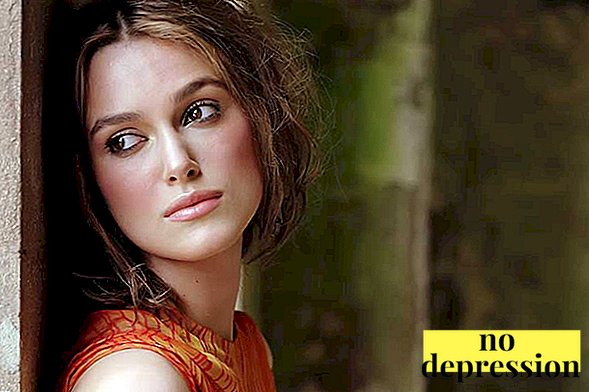Perhaps everyone knows the state apathy, melancholy, bad mood. In such cases, people often talk about depression.
But the real depression is much more difficult and it is often impossible to cope with it without the help of specialists. Therefore, it is very important to distinguish this disease from the usual sadness. What are the symptoms of clinical depression?
What it is?

It is important to understand that depression is not just a bad mood, and the disease is included in the international classification of diseases (ICD-10).
Clinical depression or major depressive disorder is mental disordermanifested over a long time, which is characterized by depressed mood, loss of the ability to experience joy, a pessimistic outlook on life, lower self-esteem.
In addition, a person experiences weakness, problems with sleep and appetite, motor retardation.
In the classifier ICD-10 depressive episodes assigned code F-32.
According to the World Health Organization, depression is the most common mental illness in the modern world.
Causes and risk groups
According to studies, depressive disorder is more common among residents of megacities in developed countries.
Perhaps this is due to a higher level of diagnosis. But people living in large cities, which are characterized by a fast pace of life and frequent stress are at risk.
What kind main reasons occurrence of depression:
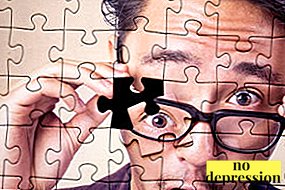 Stress. This disease often develops in people who have been under pressure for a long time: unemployed, not having their own housing, working at work, associated with nerve overload.
Stress. This disease often develops in people who have been under pressure for a long time: unemployed, not having their own housing, working at work, associated with nerve overload.- Mental injury. The reason may be the death of a loved one, divorce, loss of work.
- Cruel treatment in childhood and adolescence (beatings, violence, psychological pressure from parents, causing feelings of guilt and their own inferiority).
- Severe illness. Constant pain and limited mobility often lead to depression.
- Floor. Because of the hormonal background among women, this disease is more common than among men.
- Biological factors. A number of mental diseases, including depression, are associated with the synthesis of neurotransmitters (norepinephrine, serotonin, dopamine) in the body.
- Medication. Oppression of the psyche can be a side effect of taking certain medications.
Stages of formation and flow
Clinical depression does not occur suddenly, the symptoms increase gradually, forming a disease out of simple depression.
Psychiatrists identify several stages of development of this disease.
- Stage of denial. When the first symptoms (sleep disturbance and appetite, lethargy, the emergence of pessimistic thoughts) appear, the person does not consider himself ill and tries to lead a habitual way of life.
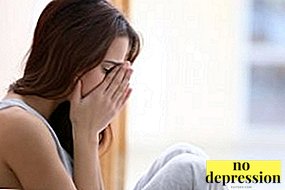 Stage offense. Due to increased apathy and anxiety, the patient begins to experience attacks of resentment and rage, aimed not only at others, but also at himself.
Stage offense. Due to increased apathy and anxiety, the patient begins to experience attacks of resentment and rage, aimed not only at others, but also at himself.A person is annoyed by his depressed state, an increased sense of inferiority. Also, there is a desire to find the culprit of the situation.
- In the third stage mood ceases to fluctuate and symptoms of clinical depression appear to the full. At this stage, the patient is aware of the problem and is ready to listen to the recommendations of the doctor.
- Untreated depression goes into the fourth stage. At this point, a person completely loses interest in what is happening, melancholy develops. Often at this stage people begin to use alcohol or drugs.
- The worst is the fifth stage.. The person stops contact with the outside world, thoughts of suicide appear.
Symptoms and signs
Clinical depression has both mental and pronounced physiological manifestations.
- pessimism, sense of hopelessness;
- lack of interest in ordinary affairs and daily activities;
- decreased muscle tone, lethargy, feeling of constant fatigue;
- low self-esteem, a sense of worthlessness;
- problems with concentration and memory;
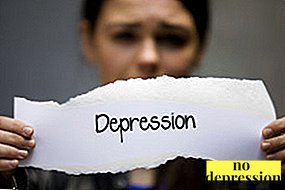 sleep disturbance (sleeplessness or vice versa, a significant increase in sleep time);
sleep disturbance (sleeplessness or vice versa, a significant increase in sleep time);- loss of appetite or uncontrolled overeating;
- headaches or chest pains not associated with diseases of the cardiovascular system;
- dizziness;
- malfunctions of the gastrointestinal tract;
- skin diseases.
Effects
Depression is not a state with which a person can cope on his own solely by an effort of will. In the absence of treatment the patient loses interest in any activity, ceases to monitor their appearance, to manage the household.
Due to the inability to concentrate and difficulties with remembering it is difficult to perform professional duties, a person may lose his job.
In the most severe cases, suffering from depression can commit suicide.
How are clinical depression and mortality related? Find out from the video:
Diagnostics

Diagnose depression can psychotherapist or psychiatrist.
First of all, the doctor interrogates the patient in detail to make a complete picture of his physical and mental state.
To assess the presence of depression and its severity PHQ-9 test usedwhich contains questions about mood, appetite and possible sleep disorders.
In addition, there is a developed by American scientists blood test for depression. It is based on determining the level of nine RNA markers associated with this disorder.
This method has not yet found wide application, but has shown good results in the course of research.
Treatment methods
A combination of psychotherapy and medication is used in the treatment of a depressive disorder. There are several groups of antidepressants with different mechanisms of action:
- Tricyclic antidepressants (TCA) - Clomipramine, Amitriptyline, Doxepin, Azafen, Fluoratsizin, etc. These drugs increase the content of neurotransmitters in the brain norepinephrine and serotonin. Recently, doctors rarely prescribe medications of this group in the treatment of depression due to the large number of unwanted side effects.
- Monoamine oxidase inhibitors (IMAO) - Melipramine, Inkazan, Tetrindol, Pyrazidol, etc. These substances have not a calming effect, but a stimulating effect and are used in atypical depression.
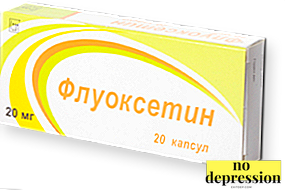 Selective serotonin reuptake inhibitors (SSRIs) - Fluoxetine, Sertralin, Citalopram, Fluvoxamine, etc. Their action is based on an increase in the concentration of serotonin due to the blocking of its capture in the synapse. These drugs are widely used because they have a minimal amount of side effects and are easy to use.
Selective serotonin reuptake inhibitors (SSRIs) - Fluoxetine, Sertralin, Citalopram, Fluvoxamine, etc. Their action is based on an increase in the concentration of serotonin due to the blocking of its capture in the synapse. These drugs are widely used because they have a minimal amount of side effects and are easy to use.- Melatonergic antidepressants - Melitor. This is the most modern drug that affects rhinestones on three types of receptors. It not only reduces the state of anxiety, but also normalizes sleep, and also restores performance.
Psychologist tips
Treatment of depression is individual, but doctors give a number of recommendations that will suit everyone suffering from this ailment.
- Do not engage in self-digging. Attempts to understand the situation, to find the reasons that led to this state, lead to the aggravation of the situation.
It is impossible to return or change the past and there is no point again and again to experience what happened.
- Slow down the pace of life. Do not always rush, trying to have time to do a lot of things. The body works for wear and breakdown is inevitable.
- Daily regime. Sleep at least seven hours a day is a guarantee of mental health. It is also important to have a balanced diet and exercise.
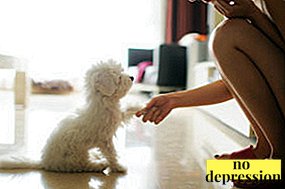 Meaning of life. One of the symptoms of depression is the feeling of being useless. Psychologists recommend changing jobs, starting a pet or doing volunteering. Any area in which you can feel indispensable and useful.
Meaning of life. One of the symptoms of depression is the feeling of being useless. Psychologists recommend changing jobs, starting a pet or doing volunteering. Any area in which you can feel indispensable and useful.- Aromatherapy. Some aroma oils have the ability to positively influence our mood. With depression helps bergamot, rose, laurel, peppermint, anise, spruce, jasmine, citrus, lavender, sandalwood, cinnamon, gardenia and cedar.
- Psychotherapy. With clinical depression can not do without a visit to the doctor.
Practical recommendations
During psychotherapy sessions, the doctor makes recommendations on how to improve the patient’s condition in practice. There are certain techniques used for depression.
For example, it is recommended to avoid negativity: do not watch the news, do not engage in conversations about a hard life.
Can cultivate positive thinking first forcing myself to look for joy every day. Then the good will come across automatically.
There is also such a technique: you should wear a rubber band on your arm and click it with every sad thought. In the brain will form clear association of negativity with pain and the person will begin to unconsciously avoid depressive thoughts.
Prevention

The main hormone of good mood helps us to prevent the development of depression - serotonin.
To increase its level without drugs, you can eat calcium, magnesium, omega-3 and vitamins of group B.
Good help physical activity. Even short-term exercise leads to the release of the hormones of happiness. Frequent walks in fresh air and adequate sleep also help in the prevention of depression.
Do not forget about illuminated. The apartment should have as much sunlight as possible. Its disadvantage can be compensated by special lamps.
Depression can greatly complicate a person’s life. Do not underestimate the seriousness of this condition and write off everything on a bad mood or laziness.
But with the help of psychotherapy and antidepressants, supplemented with the right lifestyle, you can overcome even severe depressive disorder.
Life with clinical depression: how is it? Personal experience:

 Stress. This disease often develops in people who have been under pressure for a long time: unemployed, not having their own housing, working at work, associated with nerve overload.
Stress. This disease often develops in people who have been under pressure for a long time: unemployed, not having their own housing, working at work, associated with nerve overload. Stage offense. Due to increased apathy and anxiety, the patient begins to experience attacks of resentment and rage, aimed not only at others, but also at himself.
Stage offense. Due to increased apathy and anxiety, the patient begins to experience attacks of resentment and rage, aimed not only at others, but also at himself. sleep disturbance (sleeplessness or vice versa, a significant increase in sleep time);
sleep disturbance (sleeplessness or vice versa, a significant increase in sleep time); Selective serotonin reuptake inhibitors (SSRIs) - Fluoxetine, Sertralin, Citalopram, Fluvoxamine, etc. Their action is based on an increase in the concentration of serotonin due to the blocking of its capture in the synapse. These drugs are widely used because they have a minimal amount of side effects and are easy to use.
Selective serotonin reuptake inhibitors (SSRIs) - Fluoxetine, Sertralin, Citalopram, Fluvoxamine, etc. Their action is based on an increase in the concentration of serotonin due to the blocking of its capture in the synapse. These drugs are widely used because they have a minimal amount of side effects and are easy to use. Meaning of life. One of the symptoms of depression is the feeling of being useless. Psychologists recommend changing jobs, starting a pet or doing volunteering. Any area in which you can feel indispensable and useful.
Meaning of life. One of the symptoms of depression is the feeling of being useless. Psychologists recommend changing jobs, starting a pet or doing volunteering. Any area in which you can feel indispensable and useful.
